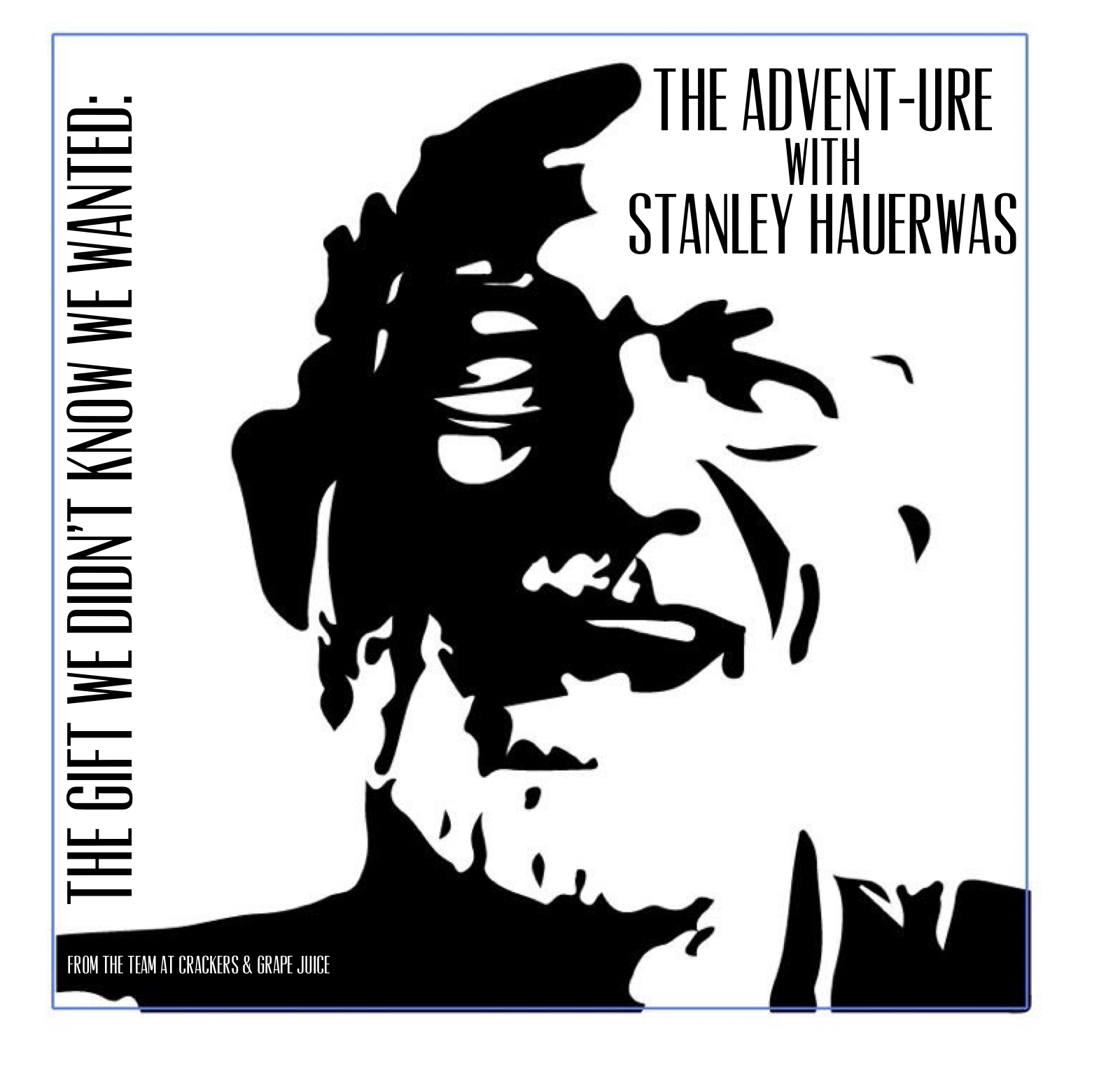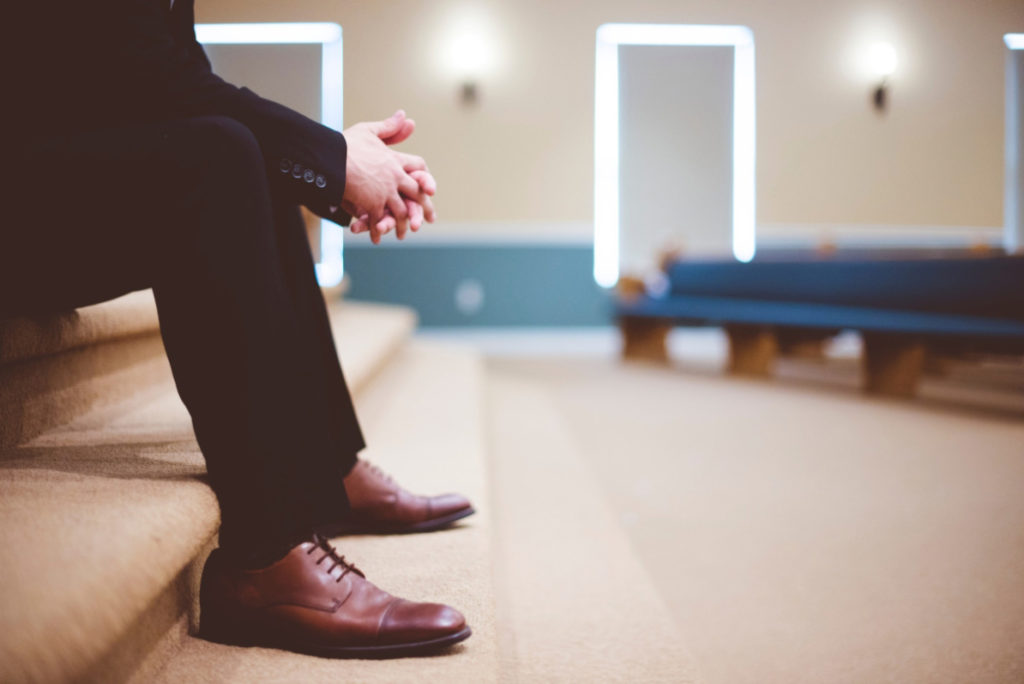
Waiting is a dirty word, at least to the ears of most Christians (in America). After all, we are a people of action. We are not comfortable to sit idly by while something could be taken care of. In the world of United Methodism, this is inherently part of our DNA as John Wesley is the one who first said, “Never leave anything till tomorrow, which you can do today. And do it as well as possible.”
It is therefore strange and uncomfortable to arrive at church during the Advent season to hear all about the virtues of waiting.

In many ways we blindly stagger toward the word of waiting with connections to waiting to open what is under the tree more than waiting on Jesus. It functions as a trite and helpful little analogy that resonates with parents and children alike. And so long as we’re all patient, we’ll get that for which we hope on Christmas morning.
But, if we’re honest with ourselves, none of us want to wait around for anything, let alone presents, the birth of the Savior, or his promised return.
Or, to put it another way, if God isn’t going to bring us the kingdom, we’ll bring it ourselves. That’s the American way.
In his sermon “Waiting” from Minding the Web Stanley Hauerwas laments our inability to wait during a season all about waiting:
“Advent is a time, and time is at the heart of what it means for us to be a people who have learned to wait. Therefore at Advent, we think it important to at least act as if we are waiting… we play at being Jews for a few weeks, but we do so as if we are in a drama with designated roles for us to play. However, once the play is over, we have no reason to play the roles associated with waiting.”
There’s a reason that many in the mainline church avoid the early Pauline corpus in worship – it’s too apocalyptic. All that talk of Jesus returning again sounds like what people in crazy churches talk about. We are far more sensible. We are helping people become better people. We are taking care of business.
And we do so because we have been habituated this way. Our bodies and our minds are shaped by practices and rituals that start to form us such that we no longer know how we wound up this way. Pay attention the next time you’re in church, notice how many times you hear the words “should” and “ought” and “must.” The church today has taken upon itself the burden of responsibility and habituates it into the people through the words and practices of worship that leave us feeling like we have to do something no matter what that something might be.
Consider how we treat the presents under the tree as children (and to some degree as adults). We were once encouraged to ask for particular things from Santa, or from friends and family, all under the auspices of possibly receiving those very gifts so long as we behaved accordingly. This is all the more relevant today with the meteoric popularity of the “Elf on the Shelf.” We are always making new ledgers to keep others in line.
But part of the message of the Gospel is that God has thrown out the ledger books forever!
As Paul wrote, “And when you were dead in your trespasses and the uncircumcision of your flesh, God made you alive together with him, when he forgave us all our trespasses, erasing the record that stood against us with its legal demands. He set this aside, nailing it to the cross.” (Colossians 2)
The songs we sing (He’s making a list, checking it twice) and the traditions we practice (Elves hiding on shelves) form us into people who are afraid that our behavior will remove blessings (presents) from our lives. And for as much as we’d like to consider ourselves beyond these silly theological ramblings as adults – habits formed in childhood are very hard to break.
Which leaves us far more comfortable with waiting for a baby in a manger who appears innocuous and unable to judge us, than waiting for the Son of Man who comes to judge both the living and the dead. For, we know in our heart of hearts, we’ve done things for which we should rightly be judged.
We no longer know how to wait. We want to skip to Easter Sunday without having to confront Good Friday and we want Christmas without Advent. And yet all of them, both the comfortable and the uncomfortable, point us to something beyond ourselves: The judged judged has come to be judged in our place. Jesus’ crucifixion, made possible by his incarnation, has accomplished that for which it was purposed.
Hauerwas puts it this way:
“Jesus’ crucifixion rattled the very constitution of the universe because death could not hold him. Three days later he is raised. He walks with two former followers on the road to Emmaus, teaching them how to read Scripture. Such instruction was required, because they found it difficult to understand how the one to liberate Israel could end up on a cross.”
Today, it seems we are a people who find it difficult to believe that God would choose to die for us. We’d rather hear about all the things we can do to earn God’s favor than to believe that God favors us regardless of our behavior.
We are not particularly good at waiting because we want to take matters into our own hands. And yet part of the message of Advent is that if it were all up to us, we would fail. We need a savior who can come and do for us what we could not do for ourselves. In the end the only thing we have to do is wait, because the rest is up to God.
